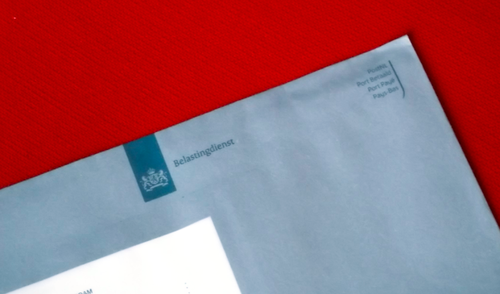Dutch would be world champions with a 60% income tax rate


The proposals to raise taxes for companies and high earners which the left-wing parties have included in their election programmes are out of step with current trends and should be ditched, say economists Rick van der Ploeg and Willem Vermeend.
The election date is drawing near and campaigns have kicked off. Important issues include health care, immigration, integration, security, jobs and pensions. The parties on the left of the spectrum are making efforts to enter higher taxes on the election agenda as well.
SP, GroenLinks and Labour are all in favour of raising taxes for companies and high earners. They feel such a move would be fairer and promote equality. They also need the money to finance the items on their wish lists, such as more spending power for people on lower incomes, lower health care costs and measures to protect the environment.
These lists constitute a political choice which we won’t go into now. We are limiting ourselves to the effects of the tax proposals and their supposed benefits to the national coffers.
Tax raise
First off let’s look at the proposal to raise the top income tax rate from 52% to 60%. The present top rate already ranks with the highest in the world and the 60% rate would make the Netherlands the undisputed world champion. That is not something to be happy about. In most European countries as well as the United States top income tax rates are set to come down. The move could open up a whopping 20% gap between rates.
Companies and high earners paying the top rate are already moving to countries with lower rates. Another hike would very likely increase their number. A 60% tax rate is hardly a welcoming gesture. Companies will find it harder to attract international top talent and international start-ups will likewise look elsewhere.
Then there’s the annoying fact that a hike of the top rate will cost money which will leave even less money to finance wish lists. In 2013 the government’s macro-economic forecasting agency CPB estimated that a higher top rate would set the treasury back over €100m.
Here is why. Initially a hike would lead to an extra €300m in revenue. But this extra revenue is counter balanced by lower revenue as a result of job losses, people and companies moving abroad and a worsening climate for foreign companies. Ultimately a higher rate will end up losing the tax office money.
And because more and more countries are lowering their top tax rates things will be even worse than the CPB predicted. Economist Bas Jacobs and a number of his colleagues have set the rate most advantageous to the Dutch economy at around 49%.
The argument for not raising corporate tax is roughly the same. Higher corporate tax would have an even more disastrous effect on the economy, largely because of the worldwide corporate tax rate war. Countries have been lowering corporate tax rates in a bid to prevent companies from moving to countries with lower rates while at the same time attracting foreign companies.
Join them
All attempts to stop this race to the bottom have proved futile. And the chances that it will happen this year is precisely nil. If anything, Donald Trump’s presidential victory and Brexit will cause an acceleration of an already strong trend towards lower corporate tax rates with the Brits aiming for 10% and Trump for 15%. Other countries, such as Belgium, Hungary and France are also planning rate cutbacks.
The Dutch 25% corporate tax rate is already putting the country in a vulnerable position internationally. Corporate tax rates are an important deciding factor for companies looking for locations. And globalisation and digitalisation are making it easier for international companies to move their headquarters to a tax-friendlier country.
With a high corporate tax rate and a 60% income tax rate the Netherlands will stop being an international player. If we can’t beat them we will have to join them. Politicians will have to march to the international tune and lower tax rates. If they don’t departing companies will leave hundreds of thousands out of a job and a much lower tax revenue than we have at present.
Attempts at convincing existing companies and start-ups to come to this country will flounder and it is doubtful that our ‘recruitment experts’ will even get a foot in the door.
That is why we trust that a new cabinet will be wise enough not to ignore the international tax trend. The Netherlands will not be able to avoid lowering the present corporate tax rate to around 15% and the top income tax rate to below 50%. Such a measure can be financed by scrapping deductions and exemptions. This will have the added advantage of clamping down on tax evasion.
This column was first published in the Telegraaf
Thank you for donating to DutchNews.nl.
We could not provide the Dutch News service, and keep it free of charge, without the generous support of our readers. Your donations allow us to report on issues you tell us matter, and provide you with a summary of the most important Dutch news each day.
Make a donation